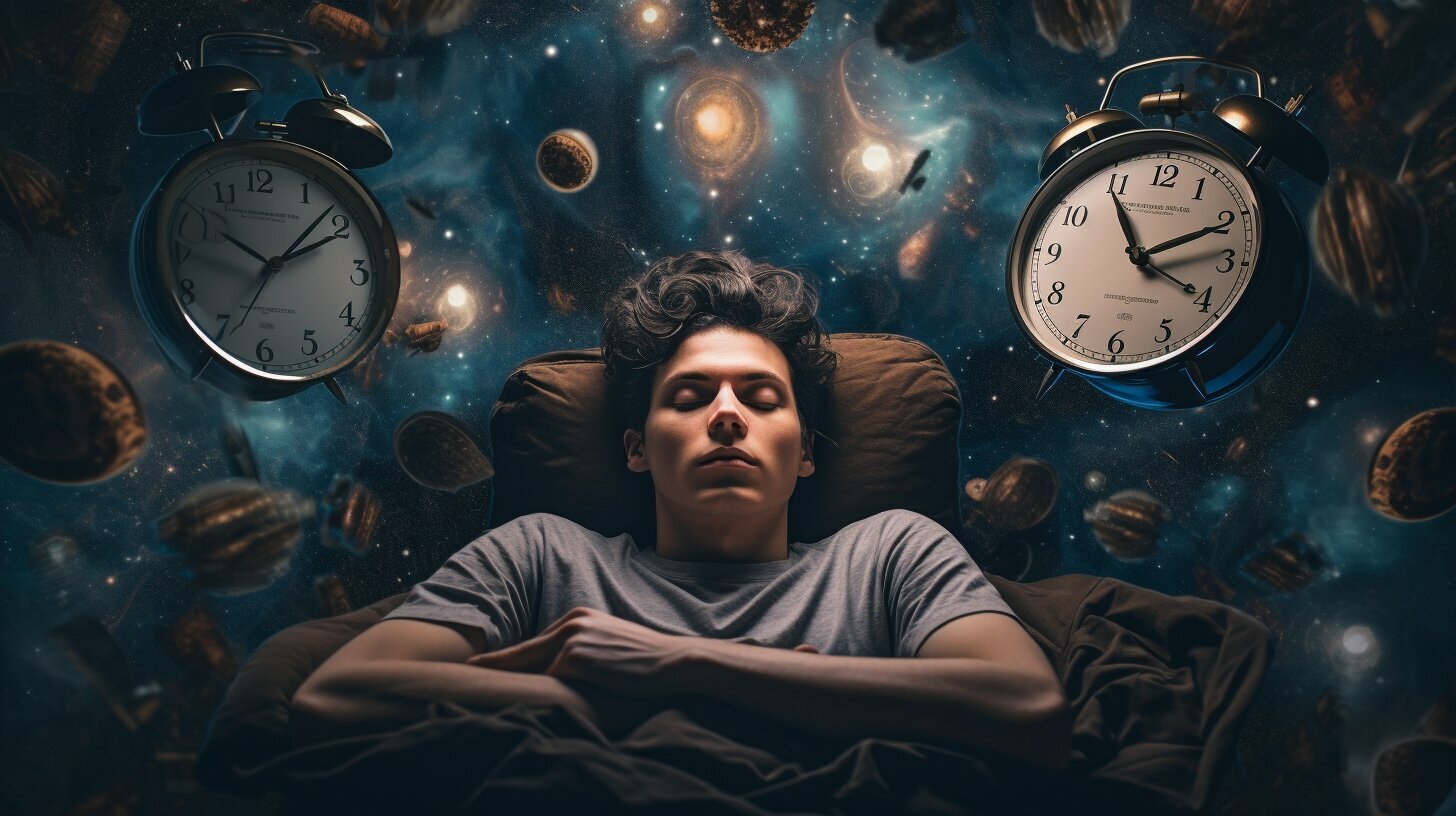If you’ve ever experienced a headache after a lucid dream, you’re not alone. While lucid dreaming can be a fascinating and enjoyable experience, the headaches that can accompany it are an unfortunate side effect that can spoil the fun. In this article, I’ll explore the potential causes of headaches after lucid dreams, provide practical tips for prevention and relief, and discuss when it is appropriate to seek medical advice.
Key Takeaways:
- Lucid dreaming can lead to headaches in some individuals
- Headaches after lucid dreams can be caused by various factors, including sleep disturbances and increased brain activity
- Prevention methods include maintaining a regular sleep schedule and managing stress levels
- Relief methods may include over-the-counter pain relievers, natural remedies, and relaxation techniques
- Individuals experiencing persistent or worsening headaches should seek medical advice
- Self-care practices and lifestyle adjustments can promote better sleep and reduce the occurrence of headaches after lucid dreams
Understanding Lucid Dreaming and its Side Effects
I have always been fascinated by the concept of lucid dreaming – the ability to control and manipulate dream scenarios while remaining aware that you are dreaming. While the idea of being able to have complete control over one’s dreams may sound appealing, it is essential to be mindful of the potential side effects that can accompany this experience.
Lucid dreaming has been associated with a variety of side effects, ranging from mild to severe in nature. Some of the most common side effects include sleep disturbances, anxiety, and even headaches.
So, what causes these side effects? It is believed that the increased brain activity during a lucid dream can affect sleep quality and lead to disruptions in the sleep cycle. Additionally, the excitement and intensity of a lucid dream can trigger the release of stress hormones, leading to feelings of anxiety or restlessness upon waking.
Headaches are also a commonly reported side effect of lucid dreaming. While the exact cause of these headaches is not yet fully understood, it is believed that they may be related to changes in blood flow and oxygen levels during the dream state.
Overall, while lucid dreaming can be a thrilling and exciting experience, it is essential to be aware of the potential side effects that may come with it. By understanding these side effects, individuals can take steps to prevent or manage them, ensuring a safe and enjoyable lucid dreaming experience.
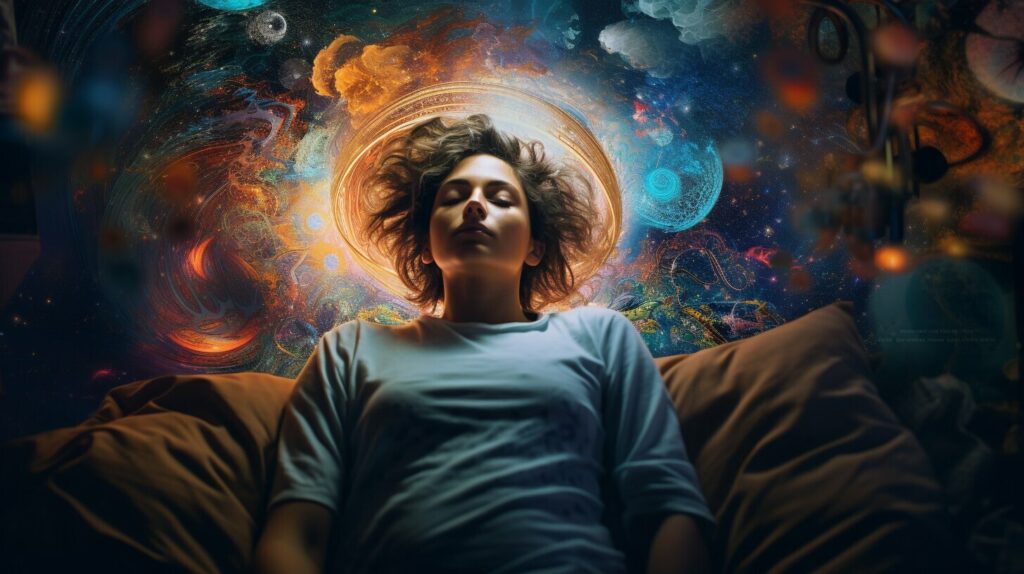
Common Causes of Headaches After Lucid Dreams
Although headaches after lucid dreaming are a common occurrence, pinpointing the exact cause can be difficult. However, some potential factors may contribute to post-lucid dream headaches.
One possible explanation is sleep disruption. During a lucid dream, your brain is in a heightened state of activity, which can cause disruptions in your sleep cycle and lead to headaches upon waking up. Additionally, the increased brain activity during a lucid dream can cause physical tension and strain on the muscles of the head and neck, leading to headaches.
The content of the dream itself can also be a trigger for headaches. In some cases, the events of a lucid dream can be emotionally or mentally taxing, which can cause stress and ultimately lead to headaches.
Lastly, pre-existing medical conditions such as migraines or tension headaches can also be exacerbated by lucid dreaming, leading to increased pain and discomfort.
While the exact cause of headaches after lucid dreams may be elusive, understanding the potential triggers can help in finding preventative measures and relief methods.

Image source: seowriting.ai
Preventing Headaches After Lucid Dreams
As someone who frequently experiences headaches after lucid dreams, I have developed some effective prevention techniques that have worked for me. Here are some tips to help you avoid post-lucid dream headaches:
- Maintain a regular sleep schedule: Going to bed and waking up at the same time every day helps regulate your body’s circadian rhythm and can decrease the likelihood of headaches.
- Manage stress levels: Stress can cause tension headaches, so it’s important to find ways to manage stress in your daily life. This may include deep breathing exercises, meditation, or regular exercise.
- Implement relaxation techniques before bed: Practices such as taking a warm bath, reading a book, or listening to calming music can help you relax and fall asleep more easily.
Additionally, it’s essential to avoid any potential triggers that may cause headaches during a lucid dream. These triggers can vary from person to person, but common ones include bright or flashing lights, loud noises, or stressful situations within the dream itself.
By incorporating these prevention techniques into your daily routine and being aware of potential triggers within your lucid dreams, you can significantly reduce the likelihood of experiencing headaches post-lucid dream.
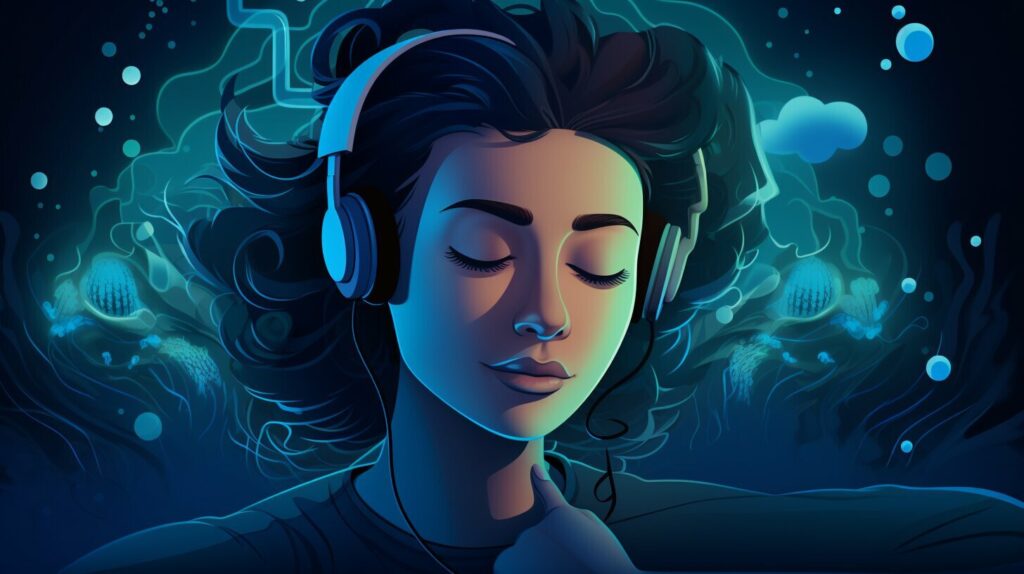
Note: If you have tried these methods and continue to experience headaches after lucid dreams, it may be helpful to speak with a healthcare professional to rule out any underlying medical conditions.
Relief Methods for Lucid Dream Headaches
If you experience headaches after lucid dreaming, there are several remedies and relief methods that can help ease your discomfort. Here are some options to consider:
- Over-the-counter pain relievers: Medications such as ibuprofen or acetaminophen can help alleviate headache pain.
- Hot or cold compress: Applying a hot or cold compress to your forehead may help reduce headache pain.
- Essential oils: Certain essential oils, such as peppermint or lavender, may help alleviate headache pain. Apply a drop or two to your temples and massage gently.
- Deep breathing exercises: Relaxation techniques such as deep breathing exercises can help reduce stress and tension, which may help alleviate headache pain.
- Meditation: Practicing meditation can help reduce stress and promote relaxation, which may help alleviate headaches.
It’s important to note that different remedies work for different people, so you may need to experiment to find what works best for you. Additionally, it’s important to consult with your healthcare provider before trying any new remedies or treatments, especially if you have any underlying medical conditions.

Image: A lucid dreamer experiencing headache relief.
Managing Headaches Caused by Lucid Dreaming
If you are experiencing persistent headaches after lucid dreams, there are a variety of strategies that can help alleviate your discomfort.
One approach is to implement lifestyle changes that can promote better sleep and reduce the occurrence of headaches. This may include adjusting your diet to include headache-friendly foods, reducing caffeine and alcohol intake, and incorporating regular exercise into your routine to reduce stress levels and improve sleep quality.
Additionally, relaxation techniques such as yoga, meditation, or deep breathing exercises can be helpful in managing the physical symptoms of headaches caused by lucid dreaming. It is also important to maintain a consistent sleep schedule and create a sleep-friendly environment in your bedroom to promote restful sleep.
If your headaches persist despite making lifestyle changes, it may be necessary to consult a healthcare professional for further evaluation and treatment options.
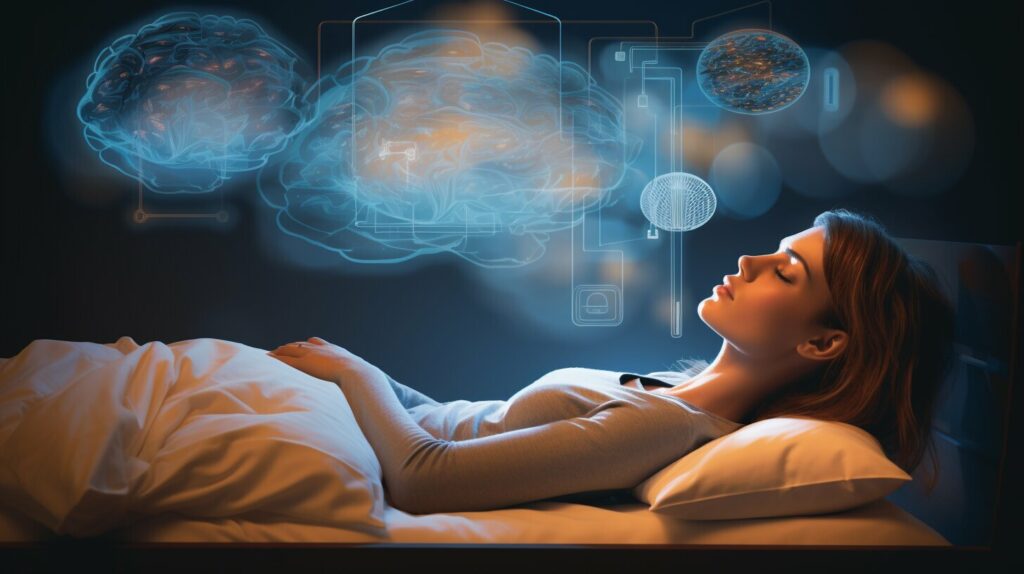
Seeking Medical Advice for Persistent Headaches
If headaches after lucid dreaming persist or become more severe over time, it is crucial to seek medical advice. While these headaches are usually benign and can be managed with lifestyle changes and over-the-counter remedies, they may be a symptom of an underlying medical condition.
There are several potential causes of post-lucid dream headaches that require medical attention. For example, sleep apnea and other sleep disorders may cause headaches due to decreased oxygen levels during sleep. Additionally, migraines and tension headaches may be triggered by the increased brain activity and sensory input during lucid dreams.
If you experience persistent headaches after lucid dreams, it is important to speak with your healthcare provider. They can help identify any underlying medical conditions and recommend appropriate treatment options. Your healthcare provider may advise you to keep a sleep diary or monitor your symptoms to help identify potential triggers.
Remember, headaches after lucid dreaming are usually harmless and can be managed with self-care and lifestyle adjustments. However, if they persist or worsen over time, it is important to seek medical advice to ensure your overall health and well-being.
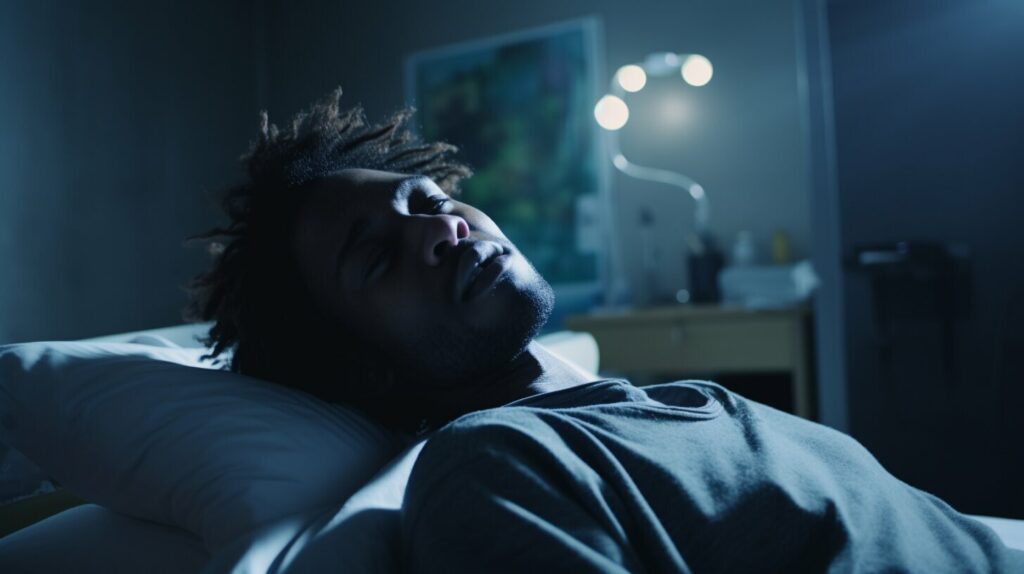
Self-Care Practices to Promote Better Sleep
Getting good quality sleep is essential for promoting overall health and wellbeing. Here are some self-care practices that can help you achieve a headache-free sleep:
- Establish a relaxing bedtime routine: This can include taking a warm bath, reading a book, or practicing relaxation techniques such as deep breathing or meditation.
- Create a sleep-friendly environment: Make sure your bedroom is cool, quiet, and dark. Use comfortable pillows and bedding, and consider investing in a white noise machine if outside noise is an issue.
- Maintain healthy sleep habits: Stick to a consistent sleep schedule, even on weekends. Avoid naps during the day and limit caffeine and alcohol intake, particularly in the evening.
By incorporating these self-care practices into your daily routine, you can improve your sleep quality and reduce the likelihood of headaches after lucid dreams.
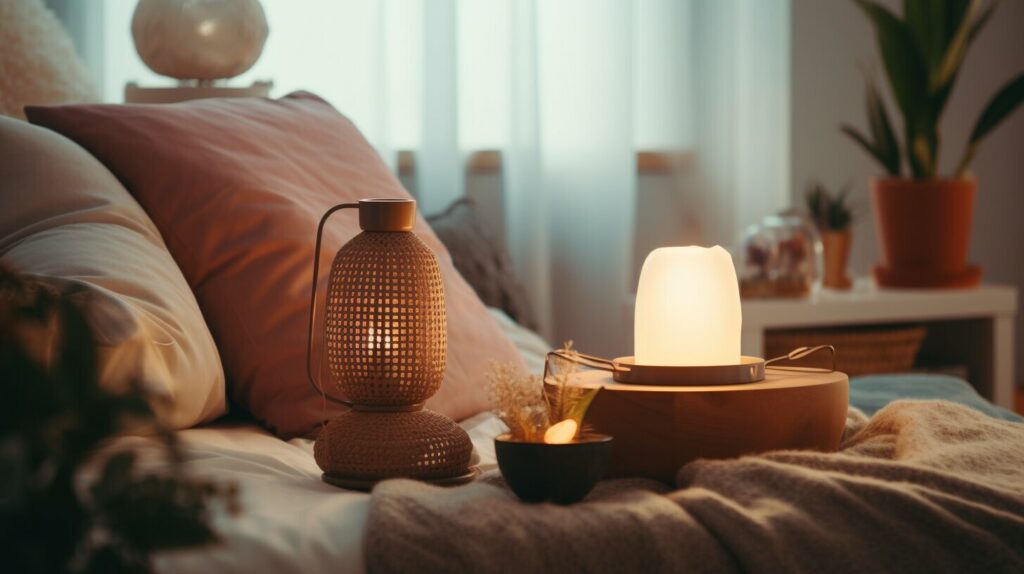
Sleep is the best meditation.” – Dalai Lama
Lifestyle Adjustments for a Headache-Free Sleep
As I mentioned earlier, lifestyle adjustments can play a critical role in minimizing the occurrence of headaches after lucid dreams. Here are some strategies worth considering:
- Dietary changes: Certain foods and drinks can trigger headaches, including processed foods, alcohol, and caffeine. Consider reducing your intake of these items or eliminating them altogether.
- Regular exercise: Physical activity can promote better sleep and reduce stress levels, both of which can contribute to headaches. Aim for at least 30 minutes of exercise per day.
- Stress management: Stress can disrupt sleep and trigger headaches, so finding effective ways to manage stress is essential. Consider relaxation techniques such as meditation, deep breathing, or yoga.
It’s also important to create a sleep-friendly environment to promote restful sleep. Here are some tips for doing so:
- Set the temperature: Keep your bedroom cool, ideally between 60 to 67 degrees Fahrenheit.
- Minimize noise and light: Consider using earplugs or a white noise machine to block out background noise. Use blackout curtains or an eye mask to eliminate any unwanted light.
- Establish a relaxing bedtime routine: Take a warm bath, read a book, or listen to calming music to wind down before sleep.
By implementing these lifestyle adjustments, you can improve your overall sleep quality and minimize the risk of experiencing headaches after lucid dreams.
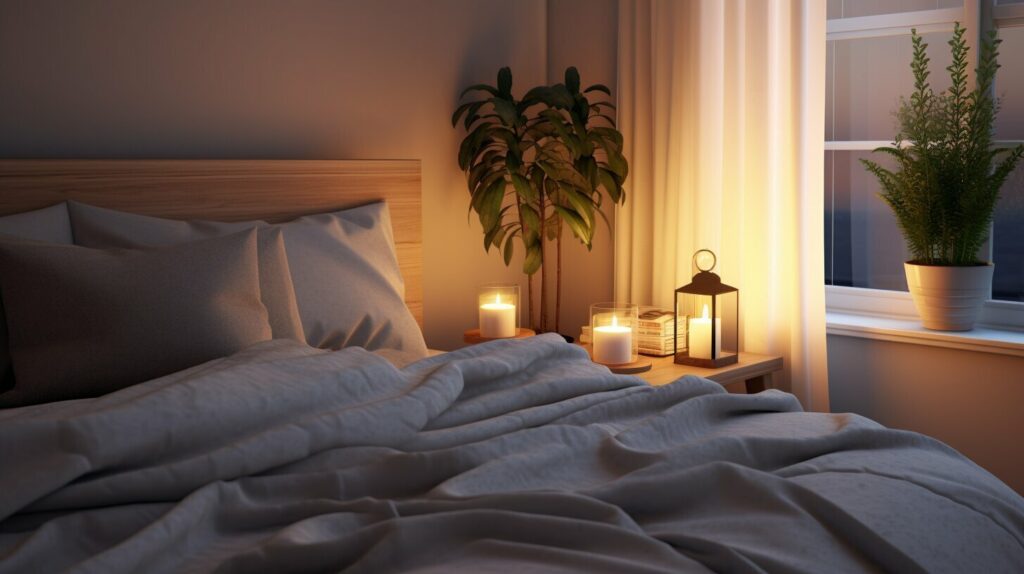
Conclusion
Now that we’ve explored the causes of headaches after lucid dreams, as well as prevention and relief methods, I hope you feel equipped with strategies to conquer this discomfort. Remember, maintaining a regular sleep schedule, managing stress levels, and incorporating relaxation techniques can help prevent headaches after lucid dreams.
If you do experience headaches after lucid dreams, there are various relief methods to alleviate the pain, such as over-the-counter pain relievers, natural remedies, and relaxation techniques. If headaches persist or worsen, it’s essential to consult a healthcare professional to rule out any underlying medical conditions.
Overall, incorporating self-care practices and lifestyle adjustments can promote headache-free sleep and improve your overall sleep quality. Don’t be discouraged if headaches occur after a lucid dream – there are strategies and options available to alleviate your discomfort and wake up feeling refreshed. Sweet dreams!
FAQ
Q: What causes headaches after lucid dreams?
A: Headaches after lucid dreams can be caused by various factors, such as sleep disruptions, increased brain activity during lucid dreams, and potential triggers within the dream itself.
Q: How can I prevent headaches after lucid dreams?
A: To prevent headaches after lucid dreams, it is recommended to maintain a regular sleep schedule, manage stress levels, and implement relaxation techniques before bed.
Q: What are some relief methods for lucid dream headaches?
A: There are several relief methods for lucid dream headaches, including over-the-counter pain relievers, natural remedies, and relaxation techniques that can be utilized post-lucid dream.
Q: How can I manage headaches caused by lucid dreaming?
A: Managing headaches caused by lucid dreaming can involve implementing lifestyle changes, seeking professional assistance, and incorporating relaxation techniques into daily routines.
Q: When should I seek medical advice for persistent headaches after lucid dreams?
A: It is important to seek medical advice if headaches persist or worsen after lucid dreams, as there may be underlying medical conditions that require attention.
Q: What self-care practices can promote better sleep and reduce headaches?
A: Self-care practices such as creating a relaxing bedtime routine, maintaining a sleep-friendly environment, and adopting healthy sleep habits can promote better sleep and minimize the occurrence of headaches after lucid dreams.
Q: Are there any lifestyle adjustments that can help me sleep headache-free?
A: Yes, lifestyle adjustments such as making dietary changes, reducing caffeine and alcohol intake, incorporating regular exercise, and managing stress levels can contribute to a headache-free sleep.
Please note that this is a sample list of frequently asked questions and their answers. The actual list may vary based on the content of the article.

